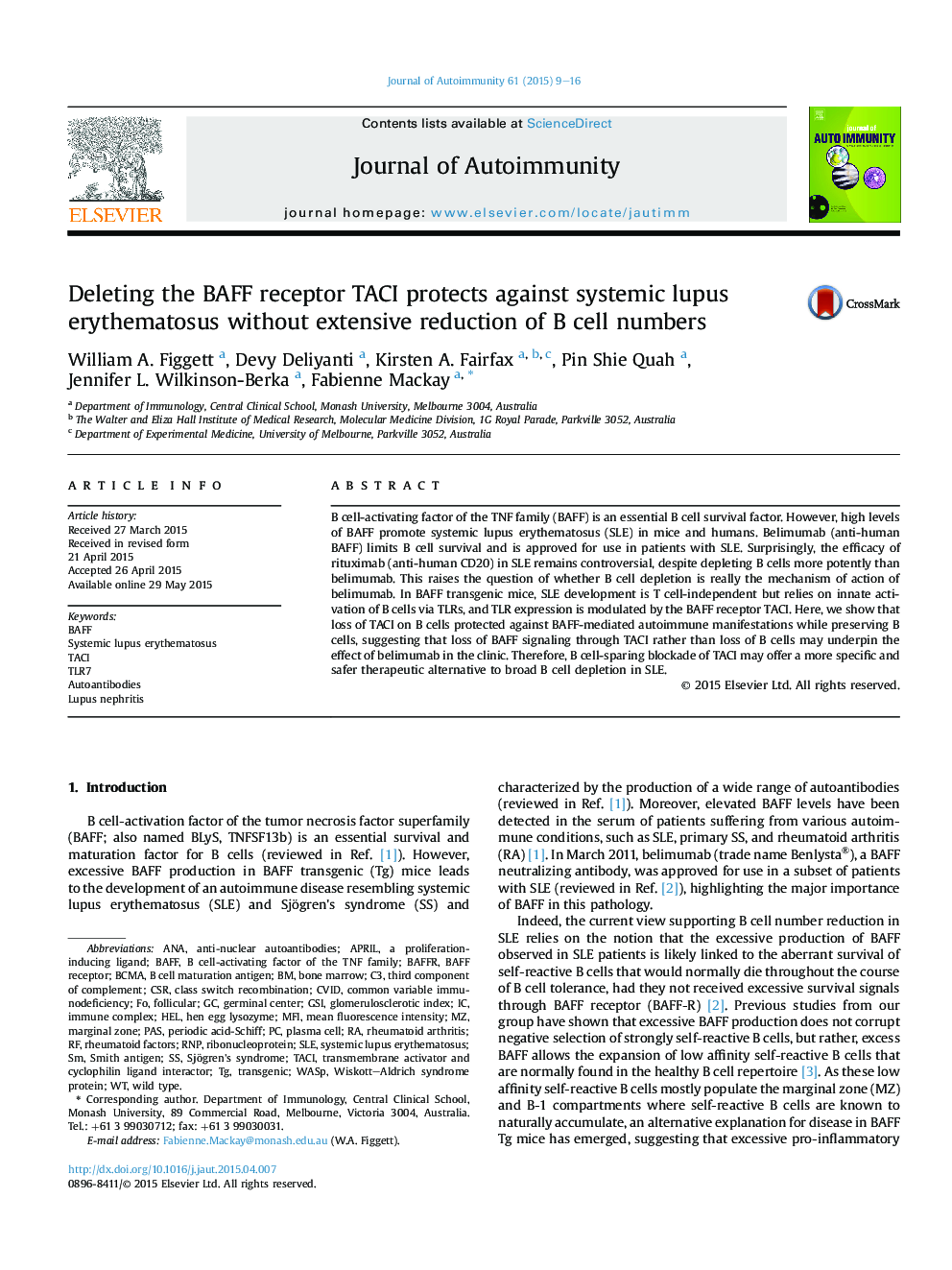| Article ID | Journal | Published Year | Pages | File Type |
|---|---|---|---|---|
| 3367707 | Journal of Autoimmunity | 2015 | 8 Pages |
•Loss of TACI expression fully protects BAFF Tg chimera mice from SLE.•TACI signalling upregulates TLR7 expression in B cells.•Biologics targeting TACI may treat autoimmunity without depleting B cells.
B cell-activating factor of the TNF family (BAFF) is an essential B cell survival factor. However, high levels of BAFF promote systemic lupus erythematosus (SLE) in mice and humans. Belimumab (anti-human BAFF) limits B cell survival and is approved for use in patients with SLE. Surprisingly, the efficacy of rituximab (anti-human CD20) in SLE remains controversial, despite depleting B cells more potently than belimumab. This raises the question of whether B cell depletion is really the mechanism of action of belimumab. In BAFF transgenic mice, SLE development is T cell-independent but relies on innate activation of B cells via TLRs, and TLR expression is modulated by the BAFF receptor TACI. Here, we show that loss of TACI on B cells protected against BAFF-mediated autoimmune manifestations while preserving B cells, suggesting that loss of BAFF signaling through TACI rather than loss of B cells may underpin the effect of belimumab in the clinic. Therefore, B cell-sparing blockade of TACI may offer a more specific and safer therapeutic alternative to broad B cell depletion in SLE.
